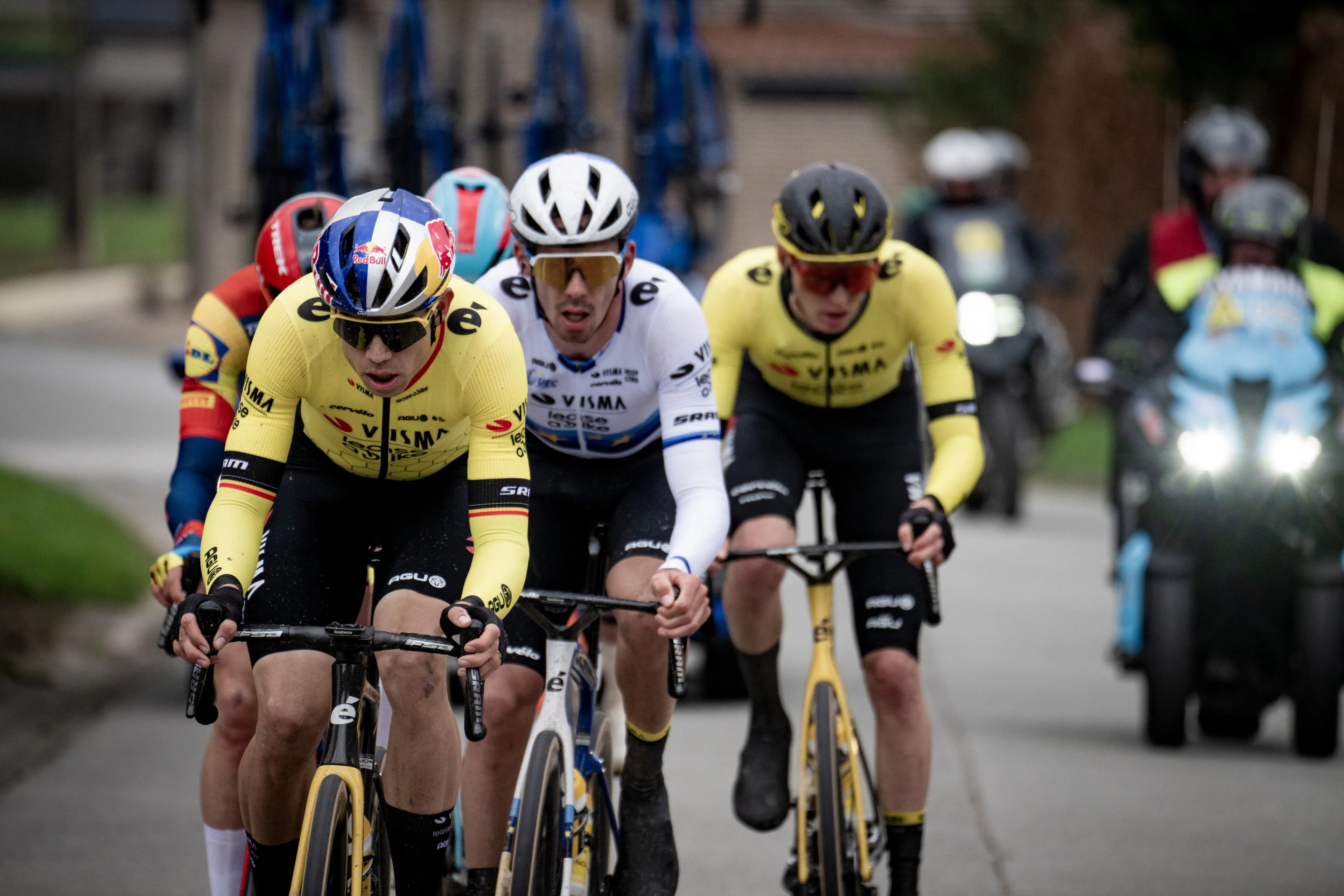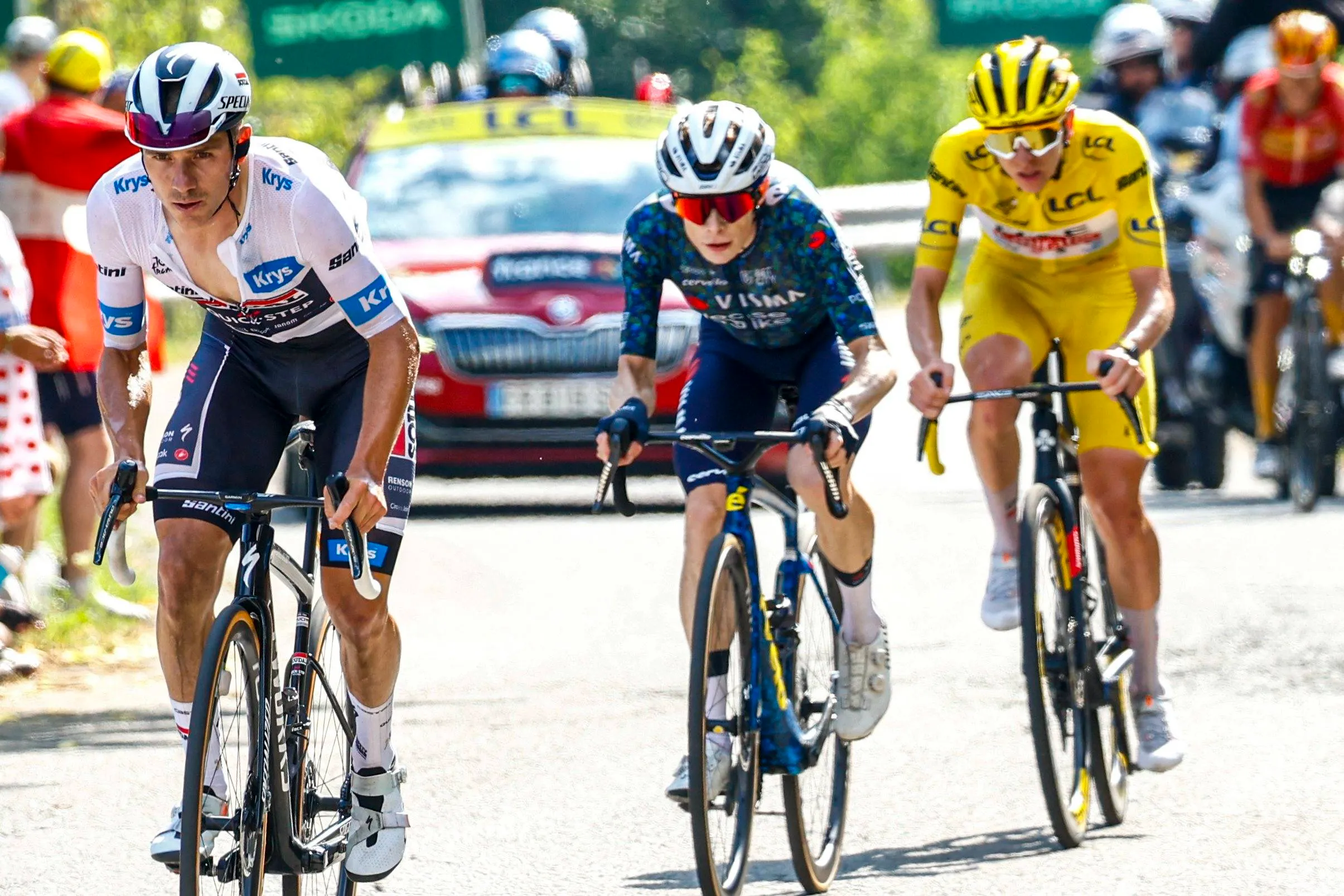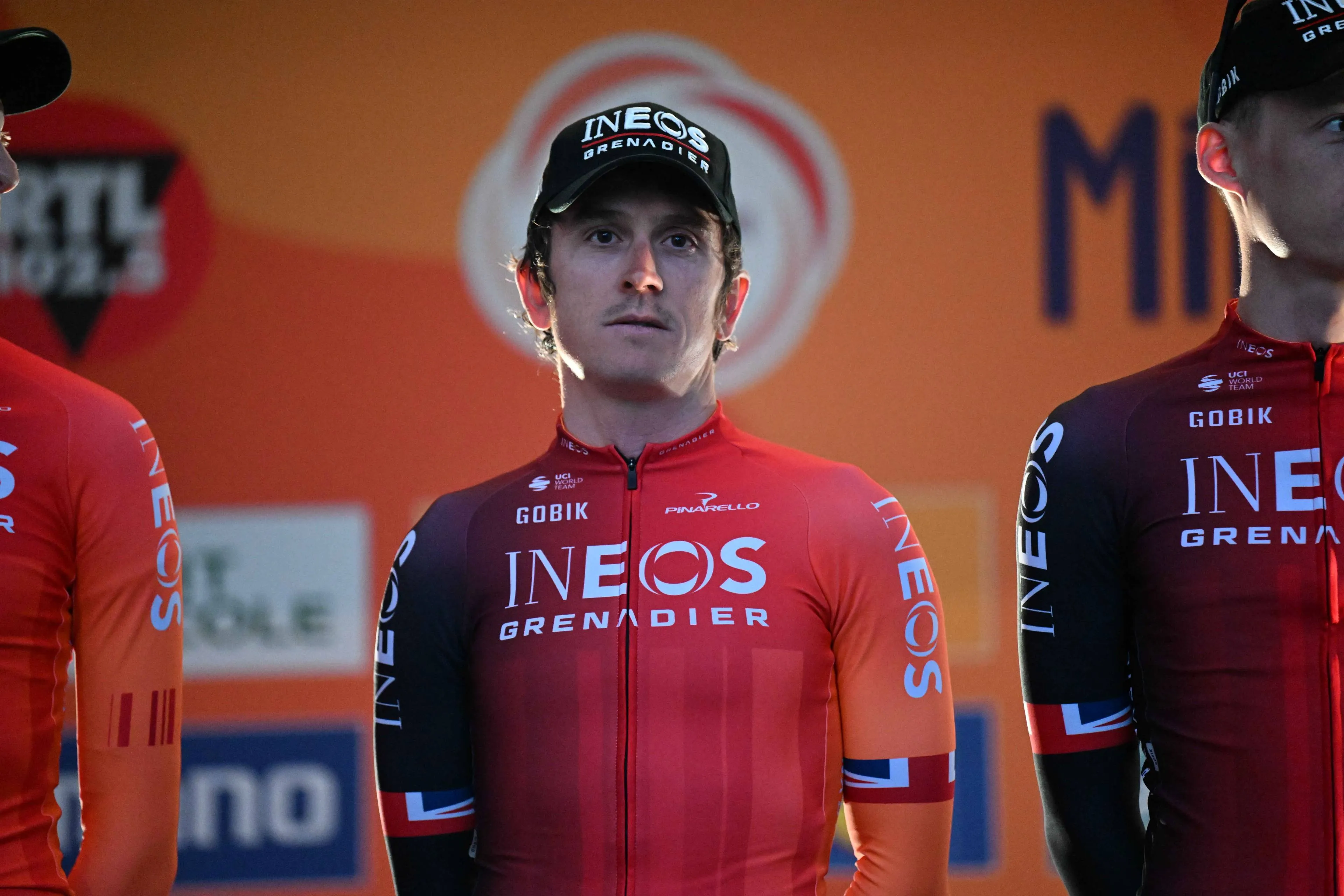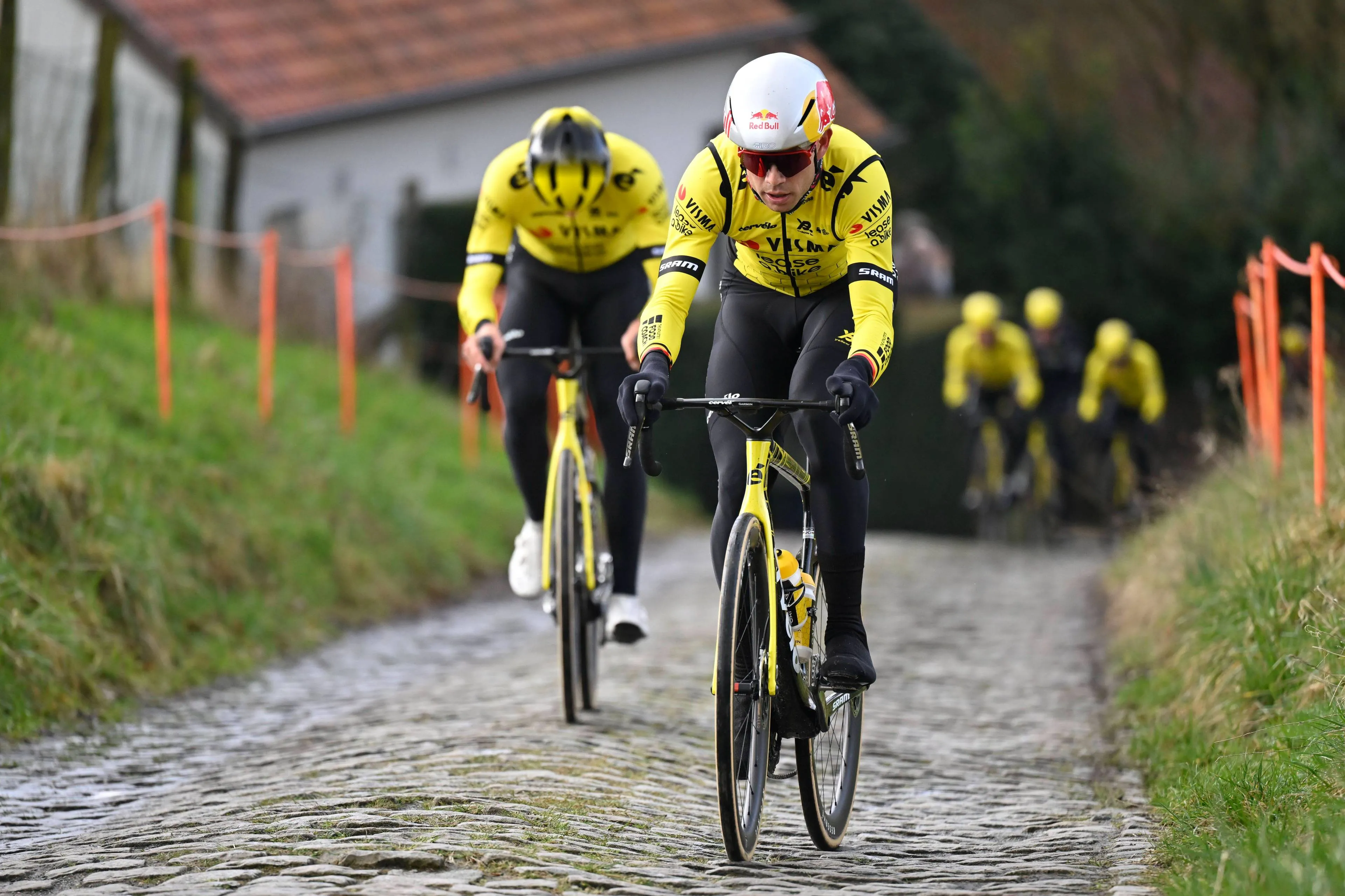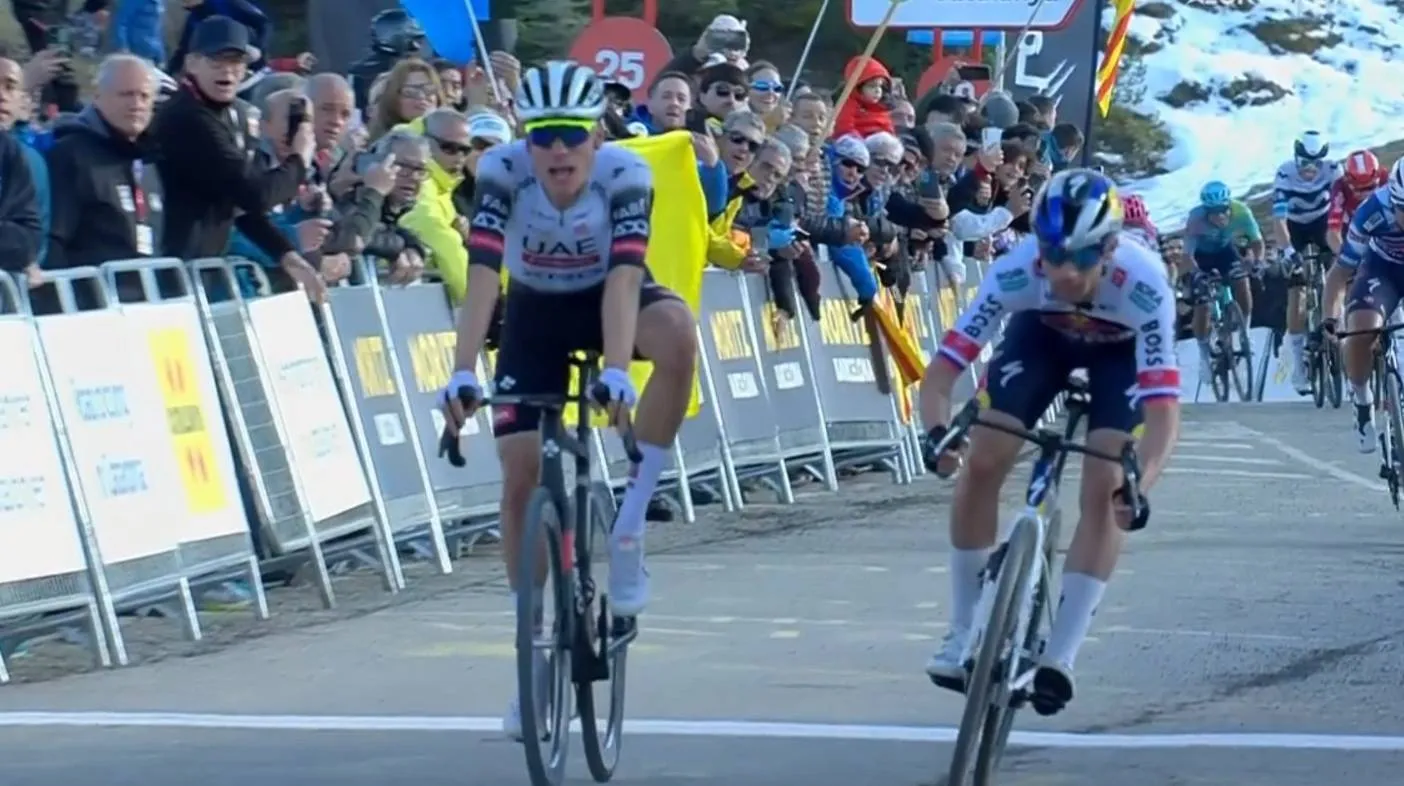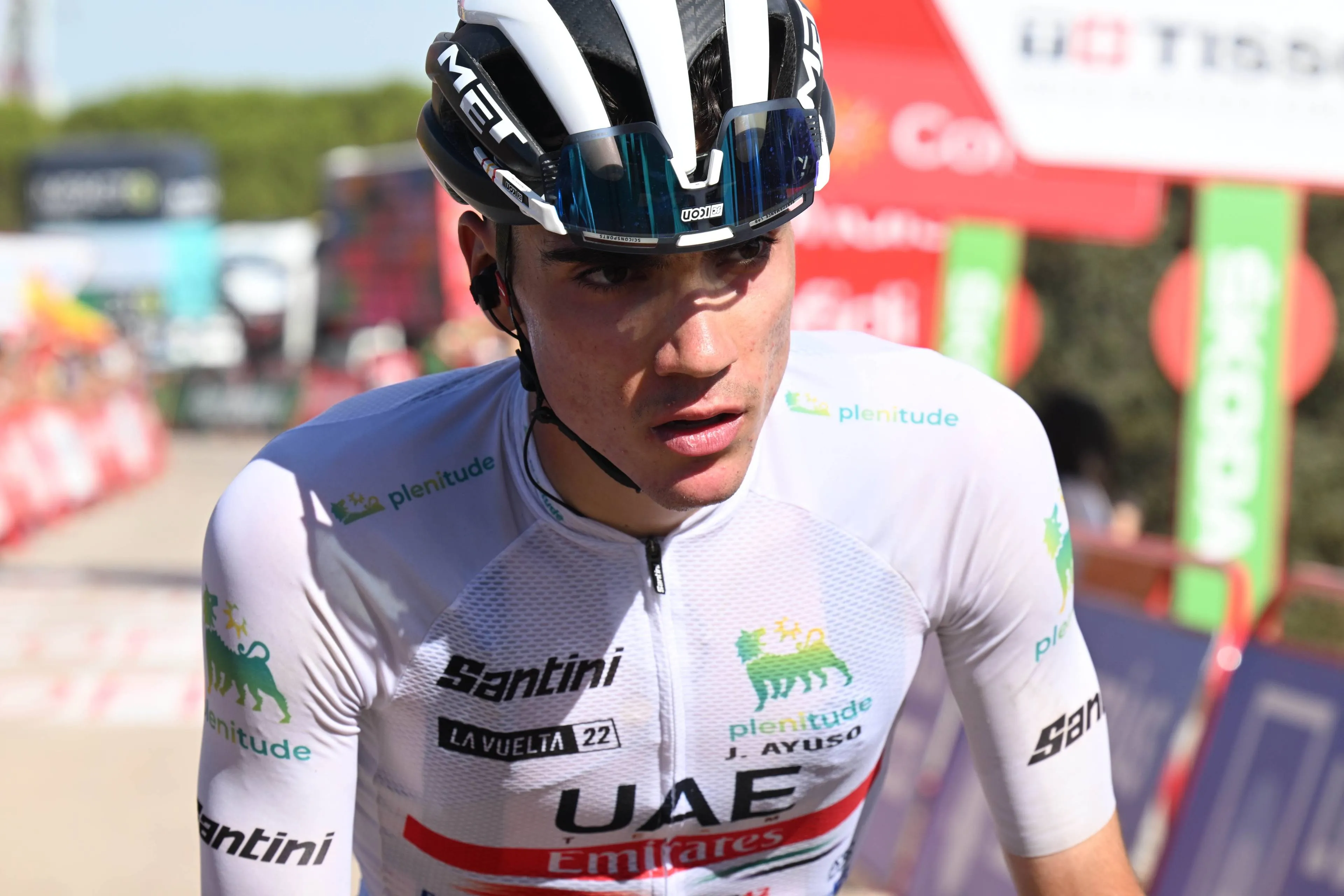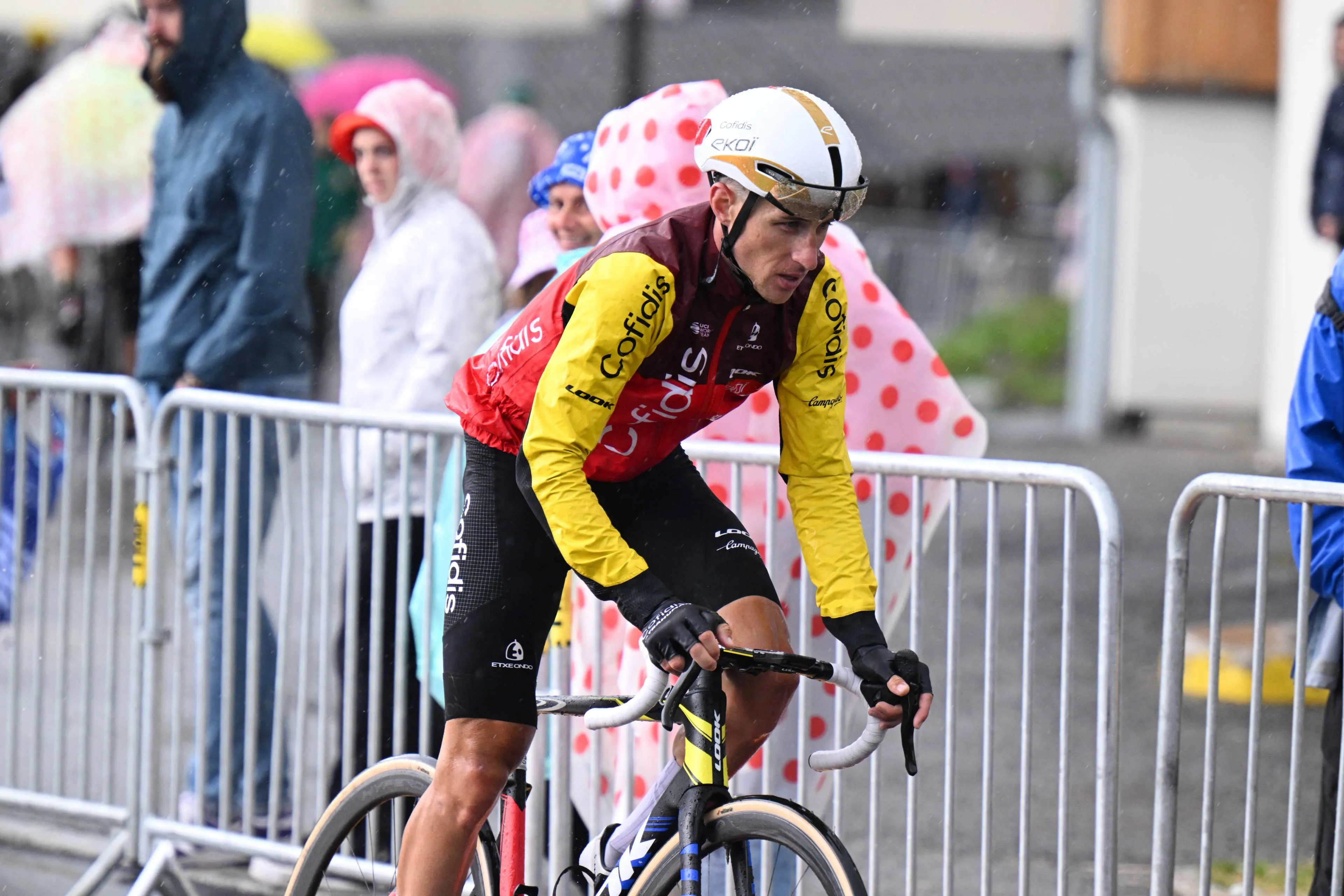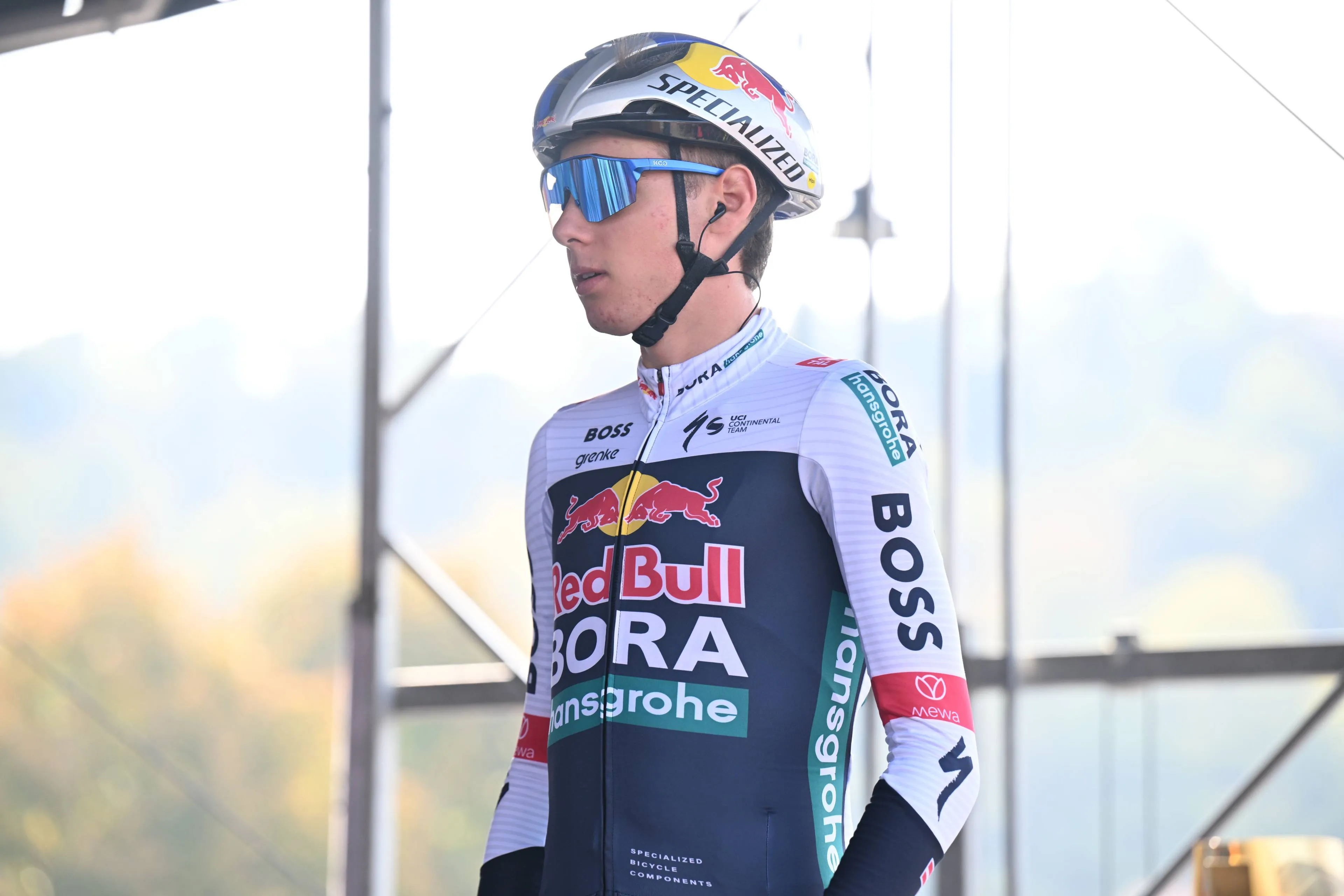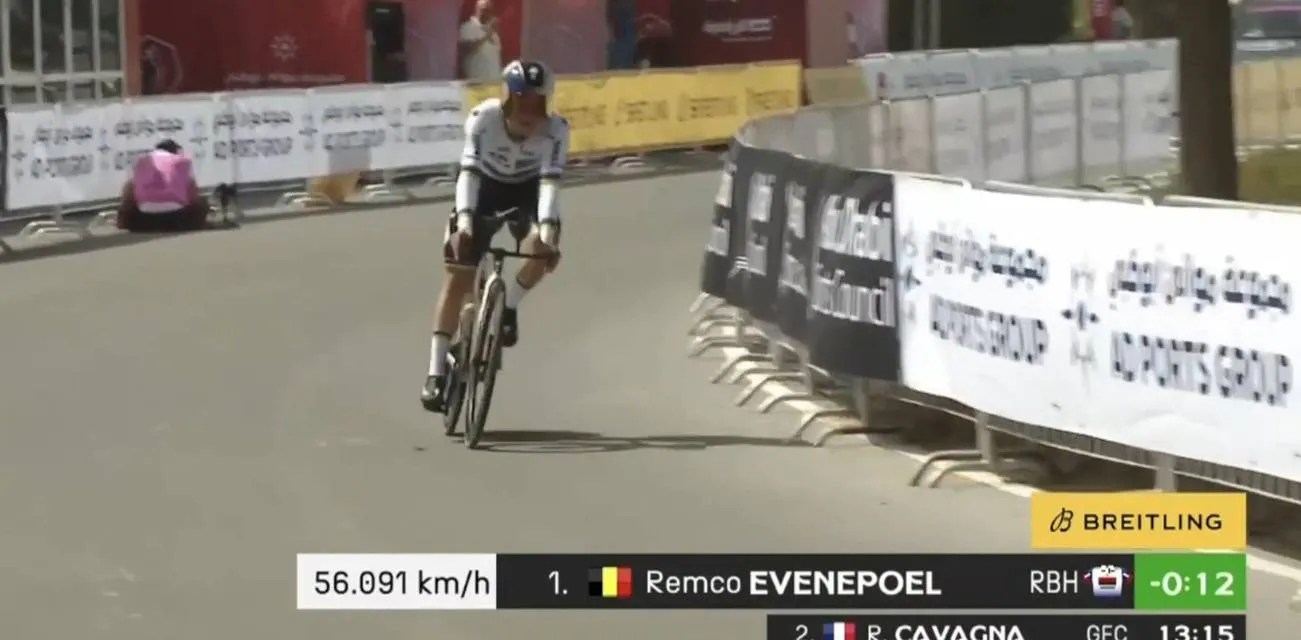ANALYSIS: What makes Tadej Pogacar's Paris-Roubaix debut so special?
CyclingThursday, 27 March 2025 at 10:45

And so it’s official. After weeks of speculation, UAE Team
Emirates confirmed earlier this week that Tadej Pogaxar will make his Paris-Roubaix
debut in 2025, lining up at the Queen of the Classics in the world champion's rainbow jersey. He will also race the Tour of Flanders the weekend prior. For
cycling fans, we’re witnessing something unprecedented: a
reigning triple crown holder taking on the most brutal race in professional
cycling.
"I saw the sparkle in his eyes," UAE DS Aart
Vierhouten said, reflecting on the moment Pogačar made the call to ride
Paris-Roubaix. "That was when I thought: ‘Yes, he really wants
this.’" According to the team, the decision was not forced, but internally
motivated. “He said: 'Yes, I'm going to ride it.’”
Read also
The question is simple. Can Tadej Pogacar actually win
Paris-Roubaix? The answer, as with most things in cycling, lies somewhere
between historical precedent, physical capability, and an understanding of risk
and timing.
Let’s dive into some of the stats, and find out why this
challenge may be Tadej Pogacar’s most difficult yet.
Read also
The numbers don’t lie
Before we look ahead, it’s worth looking back. According to
Jonas Creteur, very few Tour de France winners, past or present, have risked
their reputation (and body) on the cobbles of Roubaix.
- Last ex-Tour winner to start Paris-Roubaix: Bradley Wiggins, 2015. He finished 18th in what was his final race with Team Sky.
- Last reigning Tour de France winner to start Paris-Roubaix: Greg LeMond, 1991.
- Last ex-Tour winner to win Paris-Roubaix: Bernard Hinault, 1981. He also won the Tour that same year.
- Last reigning Tour de France winner to win Roubaix: Eddy Merckx, 1973.
In other words, no rider has won Paris-Roubaix after
becoming Tour champion for over 50 years. So, even to simply start the race as
Tour winner is exceedingly rare.
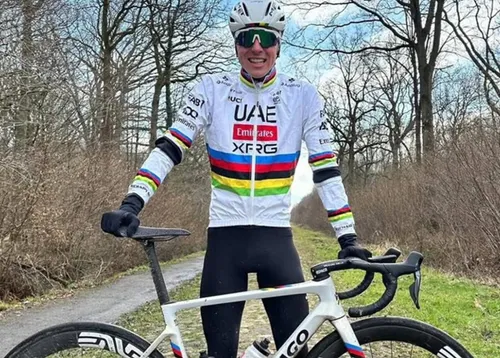
Can Pogacar conquer Roubaix?
That’s what makes Pogacar’s appearance so significant. He’s
not just a Grand Tour winner dabbling in the Classics. He’s entering as the most
dominant rider of his generation, in the rainbow jersey, with three of the Monuments
already to his name.
And he’s doing so knowing full well what’s at stake.
The monument mission
Paris-Roubaix will be the third stop in a staggering 2025
campaign where Pogacar is scheduled to race all five Monuments. It’s a feat
accomplished by very few riders in recent years, with the increasingly packed
World Tour schedule
- Magnus Sheffield did it in 2023
- Matej Mohorič did it in 2022
Now, Pogacar will attempt the same, though with far loftier
ambitions. He’s there to win.
This isn’t just about participation. Pogacar is on a mission
to win them all.
Read also
He already holds victories in:
- Tour of Flanders (2023)
- Liège-Bastogne-Liège (2021,2024)
- Il Lombardia (2021, 2022, 2023,2024)
That leaves just Milano-Sanremo, where he finished third in
2023 and 2025, and Paris-Roubaix, which he’s never raced. We’re not going to
dive into Sanremo in this article, as we’re sure Pogacar is sick of being
defeated by that race by now.
If Pogacar were to win Roubaix and Sanremo in the next few
years, he would become only the fourth rider in history to win all five
Monuments, joining Rik Van Looy, Eddy Merckx, and Roger De Vlaeminck.
Read also
That alone would cement his place in the pantheon of
cycling’s all-time greats. But the path to Roubaix victory is strewn with
cobblestones, crashes, chaos, and a certain Mathieu van der Poel.
This is no ordinary race.
Why is Roubaix so risky?
Unlike most races, Paris-Roubaix is not defined by watts. It
is defined by control, luck, positioning, and risk management. The route is
brutal: over 50 kilometres of pavé, including the infamous Trouée d’Arenberg, Mons-en-Pévèle,
and Carrefour de l’Arbre.
Punctures and crashes decide races. Favourites are often
unseated not because they’re not strong enough, but because they’re in the
wrong place at the wrong time, think back to Wout van Aert in 2023. Team
support is essential. Even the best rider in the world is useless if he has a
mechanical in the forest and no help nearby.
This is why so few Tour winners touch Roubaix. The race’s high
injury potential poses a significant risk to a Grand Tour rider’s season,
especially just mere months before the summer season. One crash can derail
everything. Just ask Geraint Thomas, who rode Roubaix in 2018 and
crashed out. He went on to win the Tour that year, but never returned to
Roubaix. Pogacar, too, is aware of the risks. He suffered a fractured
wrist in April 2023 at Liège, which ruined his preparation for that year’s Tour.
Read also
UAE Team Emirates are taking every precaution. has already
done several reconnaissance rides especially over the Arenberg Forest, but he
has not raced a cobbled race in two years.
Can he win it?
Physically? Yes.
Pogacar has shown a remarkable ability to thrive on cobbles.
In the 2022 Tour de France, he rode superbly on the Roubaix-inspired stage 5 to
Arenberg, and in the 2023 Tour of Flanders, he dropped both Van Aert and Van
der Poel to win solo. His explosive power on short climbs, endurance, and
bike-handling make him uniquely suited to all terrain.
But Paris-Roubaix isn’t just about ability. It’s about
riding perfectly, mechanically, tactically, and physically, for six hours on
some of the most treacherous roads in Europe. That’s where experience comes in.
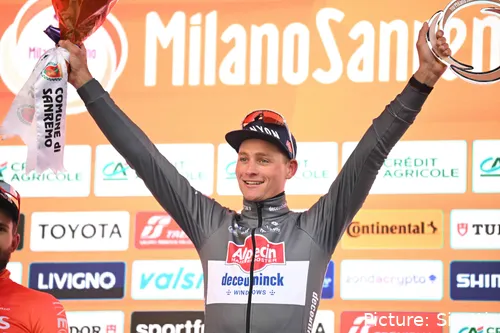
Mathieu van der Poel is the current king of Paris-Roubaix
Roubaix is often won by riders who’ve failed there before.
Dylan van Baarle and Sonny Colbrelli had multiple attempts before their
victories. Even legends like Tom Boonen and Fabian Cancellara built years of
Roubaix-specific conditioning before winning.
Pogacar won Flanders on his second attempt. But Roubaix is
not Flanders. He may have the legs to follow an attack on Carrefour, but he
could just as easily puncture, crash, or simply find himself behind the wrong
split.
Even his rivals, Mathieu van der Poel and Jasper Philipsen, will
be more experienced on the pavé, having finished first and second in both 2023
and 2024 editions. That partnership, with Alpecin–Deceuninck's support, has
already proven tactically devastating.
Read also
Now I will ask a strange question…is Paris-Roubaix hard
enough? Perhaps I should be more specific, does Paris-Roubaix have
the climbs needed for him to drop Van der Poel?
History on the line
What makes Pogačar’s Roubaix entry so monumental is not just
the risk, but the historical rarity of what he’s attempting.
A reigning Tour de France champion racing Paris-Roubaix is
almost unheard of in modern times. Bradley Wiggins did it in 2015, two years
after winning the Tour, but he was transitioning out of GC racing. Greg LeMond
tried it in 1991, but didn’t win. And the last time a Tour winner triumphed at
Roubaix was Bernard Hinault in 1981.
Read also
Even the great Eddy Merckx, who won both in 1973, only did
so once.
Pogacar could change that narrative entirely. If he wins
Paris-Roubaix, he won’t just be the first Tour champ to do so in over 40 years,
he’ll be one step closer to completely his monuments collection.
His presence also raises the level of the event. There is
already talk that the 2025 edition could be the most-watched Roubaix in years,
drawing in fans from Grand Tour and Classics circles alike.
As Vierhouten put it: "We are preparing optimally.
There is still work to be done, but this is a unique challenge. This is history
in the making."
Read also
What next?
Before Roubaix, Pogacar will race the Tour of Flanders,
where he must take on the defending champion, Mathieu van der Poel. It will
give fans and analysts alike a final chance to assess his form, handling, and
recovery ahead of the biggest test.
Van der Poel is 1-0 up against Pogacar after Sanremo, but
Pogacar beat him on the cobbles two years ago. Who will come out on top this
time?
A win at Flanders would mark his second Ronde and boost his
confidence. But even a loss won't take the shine off Roubaix. If anything, it
will reinforce how ambitious his campaign is.
Read also
He is also expected to return to Liège–Bastogne–Liège, where
he has won before. And by October, he will likely line up to defend his Il
Lombardia title, seeking a fifth consecutive win.
All of this would mean that by the end of 2025, Pogacar will
have raced all five Monuments, the World Championships, and the Tour de France
(and maybe even the Vuelta a Espana), within the same calendar year. That level
of consistency, versatility and ambition has not been seen in the sport for
decades, if ever. Tadej Pogacar’s decision to race Paris-Roubaix is not just a
bold move, it’s a historic one. By doing so, he places himself in a lineage
that includes Merckx and Hinault, riders who dared to master every form of
racing.
Roubaix is a gamble. It always is. Crashes, punctures, and
chaos could ruin everything. But for a rider who already has three Monuments,
the Tour, and the World title, greatness lies not in defending what he has, but
in chasing what few believe possible. Whether he triumphs or falls short, his presence on the
Roubaix start line will already be a victory for the sport. It’s a signal that
cycling’s biggest stars are not afraid to test themselves on its most brutal
stage.
And if he wins? We may just be witnessing the most complete rider in cycling
history.
claps 0visitors 0
Just in
Popular news
Latest comments
- Completly agree, Jan was in front of van gils, following Pidcock wheel, it was Van gils who tried to force his way through Jan and the barriers. Are they blaming Jan because he belongs to the richest team that win a lot?
 maria2024202418-02-2026
maria2024202418-02-2026 - Clickbait title, not reality-based. Yawn.itsent18-02-2026
- lame, but probably correctantipodeanpedalfan18-02-2026
- Van Gils rode like wanted to get crashed or way too over confident that he was going to overtake Jan before getting pinched. It was obvious were Jan was going/had to go and MVG had the whole road to give an inch so he would have a chance to overtake on the rightjad2918-02-2026
- Double book this showing with the Melania documentary and you might get 100 people to see it...total !frieders318-02-2026
- Simple solution...stay off the barriers since you might get closed out ! Christen's sprint was legal as he was trying to get into the slipstream of Pidcock.frieders318-02-2026
- I believe Remco now understands that he will have issues reaching the top step as long as Tadej is in the Tour, whiles he's a year junior to Tadej he has had his upper body rebuilt twice now from crashes over the last few years. I think he has a chance to win the Tour in a few more seasons, you can only prepare yourself as best you can and try. He said he needs to race some more one week stage races, he should, he can probably win them all. I also believe Remco should aim for another Vuelta if he comes out of the Tour in good form and maybe he should think about the Giro again for next season. This is potentially Tadej's fifth Tour win coming up this year, no one is going to derail that unless he falls off the bike or gets really sick.awp17-02-2026
- Not only will the great narcissist get his voice, but he'll benefit financially from this as well. Who says that cheating and lying your way to victory doesn't pay?
 santiagobenites17-02-2026
santiagobenites17-02-2026 - It'll make a good double feature with the Michael Jackson soft focus biopic.LumbarDeniro17-02-2026
- Yeah, whilst MVDP would never break a bone on the MTB... 😂Sexass17-02-2026
Loading
1 Comments
